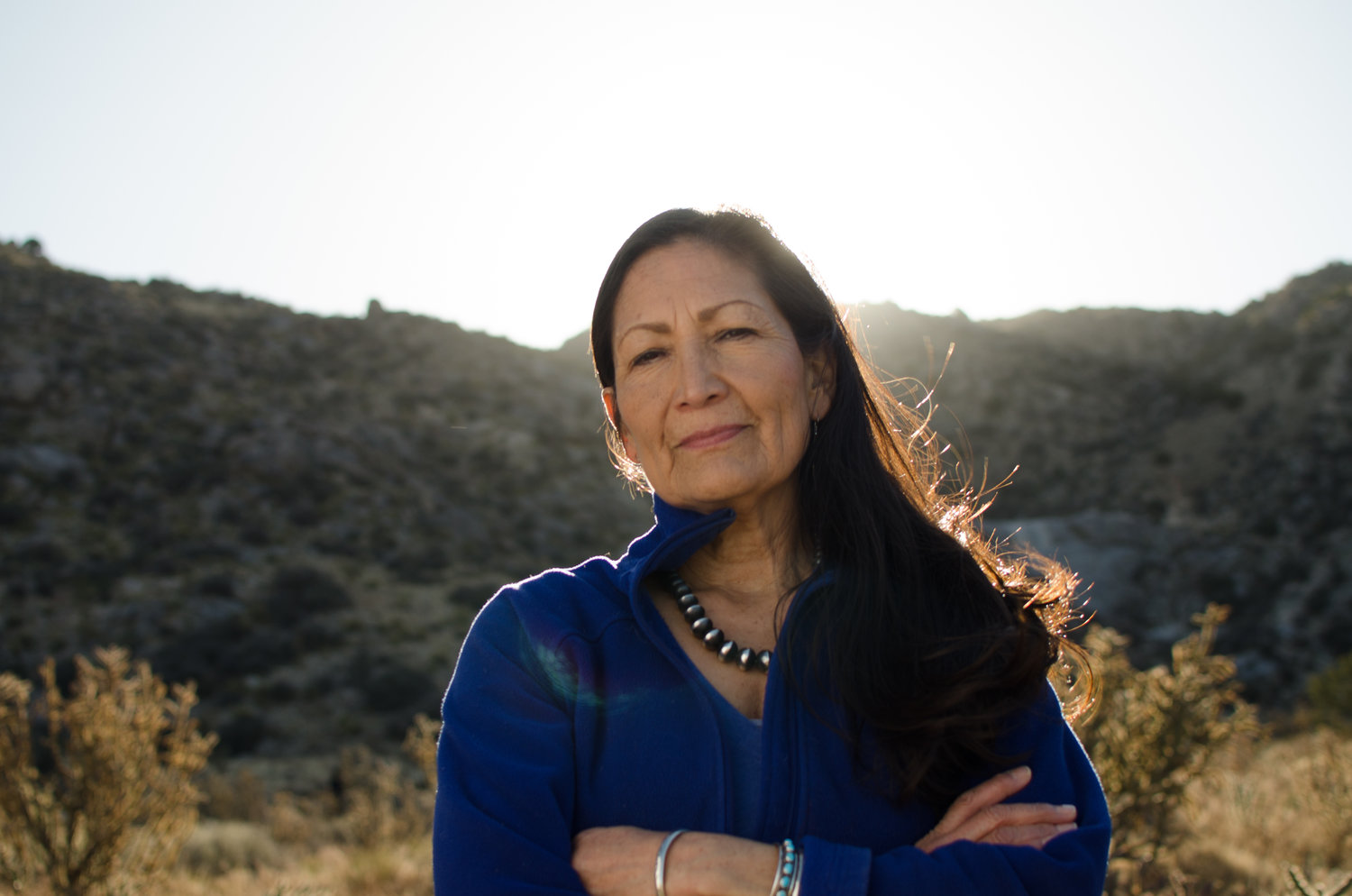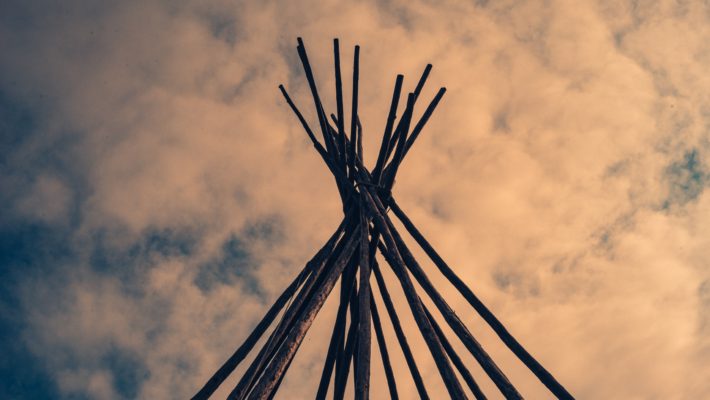Deb Haaland got to Congress the old-fashioned way: by working hard against considerable odds.
“Growing up in my mother’s Pueblo household and as a 35th-generation New Mexican, I never imagined a world where I would be represented by someone who looks like me,” said Congresswoman-Elect Deb Haaland, a citizen of the Laguna Pueblo nation, at her victory party after last week’s election.
Haaland’s Roots: “I just started walking into campaign offices”
Haaland, a solo mother and herself the daughter of two veterans, says she didn’t get handed any of her success. She worked her way through law school, and served as the San Felipe Pueblo’s tribal administrator for nearly three years. During that time, she was also organizing and volunteering in local politics.
On Friday, Haaland spoke with Democracy Now!’s Amy Goodman about how she got started in her political career. “I’ve been organizing here in New Mexico for going on 20 years. I started out as a phone volunteer. I decided, just to myself, that I wanted more Native Americans to vote.”
She said she began by showing up unannounced at campaign headquarters. “I just started walking into campaign offices here in Albuquerque, for candidates I liked, and asking for a list of Native Americans, and I would call those lists.”
From Canvassing to Campaigning: “I didn’t get any breaks”
Haaland describes canvassing neighborhoods in Indian Country, knocking on doors to get out the vote, until she became a full-time volunteer working in Native communities for Barack Obama’s 2008 presidential campaign. In 2012, all this volunteering led to a job as a Native American vote director for the state.
“Neither one of my parents have a college education. They’re not politically connected in any way. I didn’t get any breaks,” she said. “I didn’t get, you know, a friend of a friend to appoint me to any office or anything here in New Mexico. I simply wanted to get more people out to vote.”
Haaland first ran for office as New Mexico Lieutenant Governor in 2014, but lost to Republicans. She ran again in 2015 for chairwoman of New Mexico’s Democratic party, and this time she won. Her two-year term saw Democrats regaining control of New Mexico’s House of Representatives.
Last Tuesday, Haaland defeated Republican Janice Arnold-Jones to represent New Mexico’s first congressional district in Washington, DC. She will join Sharice Davids, of Kansas’s third congressional district, as the first two Native American women to ever sit as elected members of the nation’s House of Representatives.
Haaland Has a Surprise Issue to Discuss With Washington: MMIW
Representing Native constituents in the colonial capital will mean amplifying voices that have been systematically silenced and ignored throughout this country’s history. In New Mexico, Haaland points out, Native Americans couldn’t even vote until 1948. That only changed when Miguel Trujillo Sr., an Isleta Pueblo war veteran and graduate student, sued the state after coming back from his service as a Marine sergeant in World War II to find he wasn’t allowed in the polls. Before 1924, the federal government didn’t even recognize us as citizens.
Haarland’s approach to representing Native New Mexican voices in Washington includes a list of important issues, some of which she campaigned on.
“I did run on fighting climate change, moving toward 100 percent renewable energy, making sure everyone has healthcare, funding our public schools properly,” she said in an earlier interview. But there are many other important issues she means to address. “One that has not gotten enough attention over the years is missing and murdered indigenous women.”
Native women are murdered ten times more frequently than women of other races in America. Loopholes in law enforcement jurisdiction, and federal disinterest, make it easy for non-Native men to go onto reservations and assault, kidnap or kill Native women without legal repercussions. “That’s something that we need to work on,” she said.
Haaland described the epidemic, commonly known as #MMIW, as an issue that’s important to Indian country but impacts women all over the nation. And she said it needs more attention from Washington. “I’ll go to Congress to make sure that we are paying attention to the issues that folks care about.”
Haaland’s Not Mincing Words About Republican Dishonesty
Haaland described the Republican move to suppress Native votes in North Dakota—a maneuver which ended up turning out record numbers of Native voters for a midterm election—as “shameful.”
“Republicans do that because they want to win,” she said. “And the only way they can win sometimes is to cheat. And so, putting roadblocks up in front of underrepresented communities is one way they can fulfill their agenda.”
And she reminded us that Republican trickery and aggression isn’t targeted only at Native voters.
“It wasn’t just North Dakota. It was Georgia. African-American voters in Georgia and Hispanic voters in Kansas, in Dodge City. Everywhere, you know, it seems like any opportunity the Republicans have to oppress voters, they do that. So, I definitely will go to Congress to fight for that right.”
In the true spirit of an elected representative, Haaland seems to want to make sure that all of America’s voices are heard. “We have to do something about voting rights in this country.”
Looking at higher levels of office, and even lower levels of conduct, Haaland assures that Impeaching Trump “absolutely should be explored. We need to consider all options.” Her sympathies, she made clear, do not lie with the commander-in-chief. “We absolutely have to protect our democracy and fight for the American people.”
At noon on January 3rd, Haaland will join more than 100 women in the House of Representatives—the highest number of congresswomen in American history.
Deb HaalandLaguna PuebloMidterm ElectionsMMIWNative AmericanNew MexicoWomen in CongressWomen in Politics




